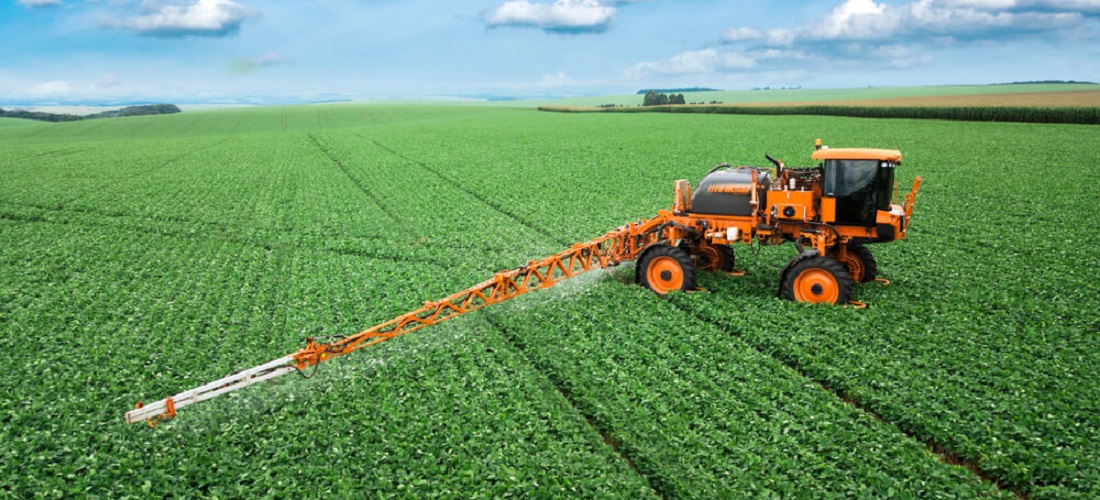
Agricultural exports in 2024 tend to experience volume drop
Dec, 27, 2023 Posted by Gabriel MalheirosWeek 202347
The revenue generated from the export of agricultural products is expected to stay at the current year’s level despite the outlook for lower agricultural commodity production, especially grains, in the upcoming year. Market analysts and sector entities indicate that the stabilization of prices in most commodities and the rise in quotations in some agribusiness chains should sustain the nominal value of Brazilian agricultural product exports next year, offsetting the lower volume shipped.
In this scenario, agriculture is predicted to maintain its share of the trade balance, although it is unlikely to be the primary driver of the nation’s export growth. By the end of 2023, the industry is predicted to have contributed 49% of Brazil’s exports.
According to researcher and economist José Ronaldo Souza Júnior of the Institute of Applied Economic Research (Ipea), seeing an increase in the quantity exported in 2024 will be difficult due to the prospect of a smaller grain harvest. The most likely scenario, he notes, is compensation with higher prices for products sold abroad. “It’s hard to say who will win in this equation between volume and revenue. In a conservative scenario, I don’t see an increase in external sales in dollars next year, and maintaining shipments would be a good result, considering price and quantity,” he observed.
Economist Gabriela Faria from Tendências Consultoria believes that the decline in the volume of agricultural exports next year is almost inevitable, with pressure from the smaller harvest due to the adverse effects of the El Niño climatic phenomenon and the recovery in production from players such as the United States and Argentina. “Everything is related to the supply scenario. This year, the quantities more than compensated for the price drop of soybeans, meal, and oil. We gained international space in sales due to the Argentine crop failure. In 2024, we won’t have such an open space for export as we had this year,” she assesses.
Regarding the revenue from agricultural exports, Faria projects a “still favorable” balance, depending on the behavior of commodity prices. “We may lose revenue and quantity if prices don’t rise next year. The forecast is for a smaller surplus than in 2023 but historically robust. Even with losses in the soy and corn crops and climatic shocks, it will be a large harvest, and there is a trend for meats to contribute to exports,” she pointed out.
On the other hand, the Brazilian Foreign Trade Association (AEB) projects an 8.6% drop in agribusiness exports, decreasing from US$ 80.200 billion in 2023 to US$ 73.315 billion in 2024, but still with a robust share in the country’s trade balance. “Commodity exports continue to be the mainstay of Brazilian exports,” said AEB in recently released estimates.
According to the entity, the projection already takes into account a drop in soy and corn production, but AEB warns that there may be more acute losses in crops than expected. “Commodity prices continue to be attractive to Brazilian exporters, but without a guarantee of maintaining current levels,” AEB pointed out.
The Brazilian Confederation of Agriculture and Livestock (CNA) estimates that agribusiness exports will total US$ 172.1 billion in 2024, compared to the projected record of US$ 164 billion this year. The increase will be modest, according to CNA, driven by the sporadic recovery of prices in some agricultural chains due to a slower pace of global economic growth and increased production in competing players of Brazil, such as the United States and Argentina. In the geopolitical context, CNA assesses that the worsening of the conflict in the Middle East may influence costs and maritime routes, as well as the dispute between the United States and China, which may intensify depending on the president elected next year.
“Javier Milei, the elected president of Argentina, has tempered his tone in Mercosur, but how he will handle the bloc remains to be seen.” In addition to Uruguay’s criticisms that could have an impact on the bloc, Argentina’s involvement impacts Brazil and the negotiation agenda as a whole, according to Sueme Mori, Director of International Relations at CNA.
Source: InfoMoney
Click here to read the original news piece: https://www.infomoney.com.br/mercados/exportacao-agropecuaria-em-2024-tende-a-cair-em-volume/
-
Economy
Dec, 20, 2023
0
China freezes US$6.5 billion swap credit to Argentina
-
Meat
Sep, 03, 2021
0
Coordinated action approved to prevent African Swine Fever in the region
-
Ports and Terminals
Jun, 17, 2022
0
Paranaguá Container Terminal to invest BRL 370 million until 2023
-
Feb, 01, 2024
0
Uruguay sees early-than-expected economic recovery in November 2023


